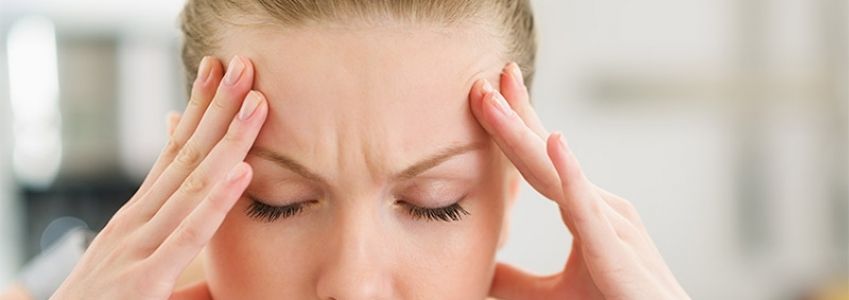
The exact mechanisms of migraines are not known. It is, however, believed to be a neurovascular disorder – meaning there is a disturbance in the way blood moves to and from the brain and brainstem. Some people with migraine headaches perceive an “aura”. Aura is a transient visual, sensory, language, or motor disturbance that is usually a signal that the headache is coming.
What are the causes of migraine?
There are many known possible triggers for migraines
- Hormonal changes in women. Changes in oestrogen esp premenstrual, during pregnancy or menopause
- Some foods, alcohol and food additives. The sweetener aspartame and the preservative MSG.
- Skipping meals or fasting also can trigger attacks.
- Stress.
- Bright lights and sun glare can induce migraines, as can loud sounds, strong smells and perfumes.
- Changes in wake-sleep pattern, too much, too little or jet lag.
- Intense physical exertion
- A change of weather, or pressure can prompt a migraine.
- Some medications.
What are the symptoms of migraine headache?
- Usually throbbing or aching; variable in severity
- Onset is usually fairly rapid reaching peak within 1-2 hours
- Can last hours to days
- Are often recurrent and decreasing with age
- May also have nausea, vomiting, visual disturbance and other neurological symptoms
- May be preceded by an “aura”
- Can be aggravated or triggered by Alcohol, certain foods, tension, hormones/pre-menstrual, noise or bright light.
- Often relieved by Quite dark room, sleep
What to do?
- As migraines can be quite severe you should never ignore them and they should be investigated by your GP
- Migraines are often responsive to medications and medication is often required to control the pain. Some people also take medication to prevent severe migraines. You will need to see your GP.
- Your therapist can give you instructions on how to manage your migraine and if and when possible may be able to use gentle treatment on spasmed muscles due to pain and help reduce stress.
- Your therapist can help to identify the cause of the migraine and contributing factors. They may prescribe you specific exercises and or stretches and relaxation techniques to avoid reoccurrence of the problem.
- Your therapist can help educate you on good posture and ergonomics in your daily life especially when working on the computer.
- Rest in a dark and quiet room; avoid bright lights, computers and tv. Try to relax and remove yourself from stressful situations, drink plenty of water and catch up on any missed sleep.
- A cool pack or cold face-washer on the head or neck can be relieving.
